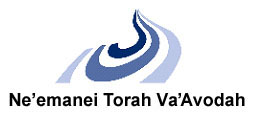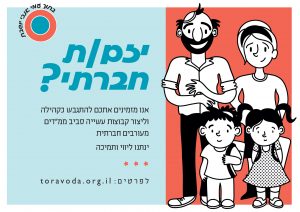Revitalizing Communities around Integrated Schools
Despite the fact that it is composed of a variety of different communities, Israel has not reached its full potential as an integrated society. This is particularly pronounced in its schools—and, in particular, in certain religious schools that are populated almost entirely by Ethiopian-Israeli children from a low socioeconomic demographic. This sad state of affairs has negative effects for the students, their families, and, ultimately, for Israeli society as a whole.
An unintentional pilot program in 2012 saw the near complete integration of a religious school in Lod that had, until that time, been almost entirely Ethiopian-Israeli. Parents from other communities had initially been hesitant to register their children. In 2012, a small number of families registered; a year later, twenty non-Ethiopian families sent their children to the school. By 2015, the school was successfully integrated, with children from all walks of life learning together. The key to this success was building a community around the school—a community that holds activities together, studies religious topics together, and meets on a regular basis. Ne’emanei Torah Va’Avodah, witnessing this success, has set a goal of helping other schools integrate and giving the next generation a chance at a truly multicultural education.
In order to do so, we will begin by hiring a program coordinator. The coordinator’s activities will be as follows:
- Selecting the schools and cities in greatest need of integration. The coordinator will look for schools that are comprised of at least 30% or 40% of children from low socioeconomic backgrounds.
- Hiring eight local coordinators.
- Working with the local coordinators to address the challenges inherent in integration, while at the same time drawing together the families from the community.
- Making the school more accessible and more attractive to the greater community.
This program is truly innovative; the integration of Israeli society has often been addressed from the top down, but this is an initiative that comes from within the communities and works with people to create a long-term change. While similar initiatives have, at times, brought a wholly different community into a socioeconomically troubled society, these programs oftentimes keep the new demographic socially segregated, serving to increase the gap between the old community and the new. Our program creates a new community by blending the old and the new around the school, empowering and enriching the society as a whole.
Moreover, Ne’emanei Torah Va’Avodah is uniquely positioned to effect this type of change; for years, we have been conducting research on public religious schools and the system at large. We are familiar with the communities and the problem areas; we have experience strengthening integrative schools and institutions. This is a need that must be addressed; its effects will be felt within the schools, within the communities, and within the country at large.








